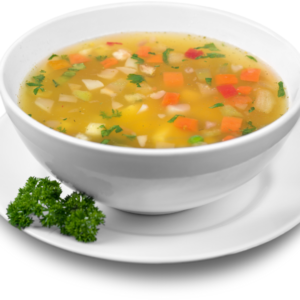6 Pillars of Health
The Mayo clinic recently released 6 pillars of health and if followed these 6 pillars could eliminate chronic disease by 70-80%!!!🤯 I saw this article in the Star Tribune a local paper in MN. I wanted to look at the 6 pillars and show you how Ayurveda was a bit ahead of the game with these 6 pillars. They also might seem similar to what Dan Buettner learned from the Blue Zone Project.
1. Avoid Substances- Drugs & Alcohol
This might be a pretty obvious one but is a vital one. Alcohol is probably the trickier one for people. It is a more socially acceptable drug. I was recently reading- Quit like a woman by Holly Whitaker and wanted to share a few of her pointers on why alcohol can be hard on the body. A great book to explore if you're sober curious or want a different relationship with alcohol.
Short to medium effects of drinking alcohol
- Disrupts Sleep (see pillar #2 as to why that matters)
- Fuels Anxiety
- Impedes detoxification (more to come on the liver and Ayurveda in Jan. 2022 solo podcast episode)
- Causes weight gain or interferes with weight loss
- Causes facial redness or broken capillaries
- Messes up your brain
- Messes up your blood sugar balance
- Disrupts hormone function (increases endocrine)
- Is linked to 7 different cancers
- Causes premature aging
- Destroys your gut health (microbiome)
Needless to say that's not a list of positive qualities. Plus it can be highly addictive.

2. Focus on Sleep
Sleep is essential to both physiological & cognitive functioning. For any new mamas you know how important sleep is once you're missing it. Or if you suffer from insomnia not easy to deal with. Sleep is the time to rest & rejuvenate so you feel restored.
Sleep imbalances according to your dosha
Vata Dosha
- Tend to be irregular and light sleepers
- Enjoy a soft bed to cushion their smaller frames
- Tendency to grind their teeth, sleep walk or talk in their sleep.
- Dreams can be spacious and airy focusing on movement, adventure or being chased.
- Have trouble recalling their dreams
- Common time to wake up is 2-6am
- Vata doshas might not sleep a lot but need the most sleep of any dosha- 8-10 hours.
Pitta Dosha
- Generally sleep well though somewhat lightly
- Prefer a firmer bed and few covers due to the warmer body temp.
- Pitta types can often forgo sleep due to work deadlines and a moderate amount of sleep is best- 8 hours.
- Dreams can be fiery, vivid and active dreams
- Sometimes can have a hard time falling asleep due to a mind that races with to do's.
- Waking up between 10-2am can be a pitta sign. That's also the time you're most likely to experience REM sleep.
Kapha Dosha
- Tend to be heavy sleepers and can sleep anywhere anytime
- They love to be in their beds and like to sleep more than the other doshas but need the least amount of sleep 7-8 hours.
- Something soft to sleep on, fluffy covers and a soothing bedroom atmosphere
- Kapha dreams- calm, smooth, watery & emotional.
- 6-10am/pm is kapha time of day making it easy for kaphas to fall asleep and oversleep in which they feel heavy and sluggish for the extra hours of sleep.
Sleep hygiene podcast coming Jan. 2022

3. Stress Management
We all know how bad stress on our bodies can be. We feel depleted, tired, anxious, can gain weight, tend to eat things we don't actually want to soothe that overwhelm we might feel. Having a good way to deal with your stress is key. Here is a list of a few Ayurvedic ideas below.
- Yoga
- Meditation
- Pranayama
- Working out
- Yoga Nidra
- Color, draw or other artistic endeavours
- Talk with someone
- Go for a walk
- Repetitive movements or dancing

4. Nutrition
We all know our western approach to nutrition might be a bit broken. There are so many diets meant to sell you on the next big thing. Which ends up taking you farther away from your own intuitive nudges. For myself Ayurvedic eating has been the simplest and best way of eating for myself to find my own trust again. Here are a few Ayurvedic nutrition tips.
- Early, lighter dinners try and be done eating by 6pm and have soup or cooked veggies.
- Lunch as your largest meal
- Cooked veggies vs raw vegetables
- Room temperature water
- Paying attention to the qualities of food and how they make you feel. Spicy, hot foods might make the pitta dosha go out of balance. Light, dry foods can make the vata dosha come out of balance and heavy, rich foods can weigh down the kapha dosha. Really paying attention to what your eating and what dosha might this help or hurt can help you stay in-tune with you!

5. Connectedness
This is one of the key factors in Dan Buettner The Blue Zone book. Countries that live longer have a connection to a community. The community could be a religious institution, the neighborhood they live in, family, or a yoga studio. Some place where you feel connected to something larger than yourself. You can share stories with each other laugh, cry and have a place to vent frustrations when needed.
I know in our digital age that we are more connected in someways but so much farther apart in other ways. Having a community will help improve your mental health. The better your mental health the easier it is to do the rest of these 6 pillars.

6. Physical Activity
Movement. We need to move our bodies. It's so easy to sit behind your computer or phone all day and feel drained by 3pm. Losing motivation to move our bodies. That's why Ayurveda suggests moving first thing in the morning during those kapha hours. 6-10am use that time to reduce the stagnation from your slumber to get going. My personal trainer side says the best time to workout is when you're going to do it. If you know after work does work best for you keep with that routine.
The main thing though is getting into a routine. What does Ayurveda recommend?
- Walk daily
- Yoga asana
- Workout until you break a sweat and slow down your tempo
- During the winter months you can workout a bit harder since it's the kapha time of year
- Pitta time of year (summer) don't workout while the sun is the hottest it can aggravate the pitta dosha

Conclusion
Those were the 6 tips recommended by Mayo Clinic if you want to reduce chronic disease by 70-80%. Which tip is the easiest or hardest for you? I know these are not always the easiest tips to follow or we would all be doing them and chronic disease would be something we rarely heard of instead of a mainstream concept. Whichever category is your thorn how can you slowly start to make habit shifts so you can make a turn towards a healthier you?

Wanting Ayurvedic Support to guide you through these 6 pillars?
These are 6 pillars I focus on as an Ayurvedic Wellness Counselor. I aim to help you improve on all 6 of these pillars with practices that work for you. If you want to hop on a free 20 minute discovery call to see if an Ayurvedic program would be right for you book your free call below.
